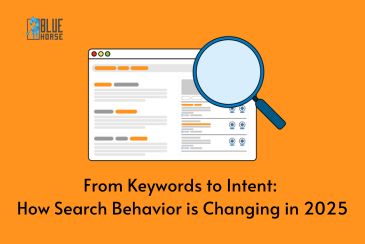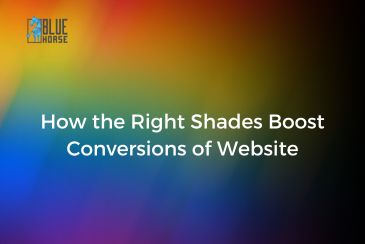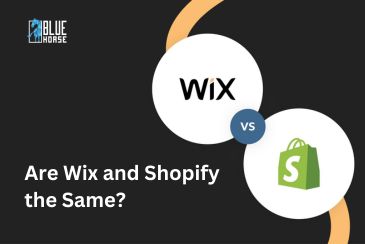Are Wix and Shopify the Same
When it comes to building a website or an online store, Wix and Shopify are two of the most well-known platforms. Both offer easy-to-use solutions, but many business owners and entrepreneurs often wonder: Are Wix and Shopify the same?
The short answer is no—while both allow users to create websites, their core purposes are different. Wix is primarily a website builder designed for users who want flexibility in designing blogs, portfolios, or small business sites. On the other hand, Shopify is a dedicated eCommerce platform built specifically for selling products online, making it a preferred choice for businesses focused on online sales.
This blog will break down the key differences between Wix and Shopify, covering aspects such as ease of use, eCommerce features, pricing, SEO, and overall performance. Whether you're an entrepreneur starting an online business or a small business owner looking to expand, understanding these differences will help you choose the right platform for your needs.
By the end of this guide, you'll have a clear understanding of which platform aligns with your business goals, ensuring that your investment in an online presence is both effective and scalable.
Understanding Wix and Shopify: What Sets Them Apart?
If you're looking to build a website or start an online business, you've probably come across Wix and Shopify. At first glance, they might seem similar—they both help users create websites without needing to code. But in reality, they serve different purposes and cater to different audiences.
What is Wix?
Wix is a drag-and-drop website builder designed for people who want full creative freedom without dealing with complex coding. It’s widely used by bloggers, freelancers, small businesses, and creatives looking to showcase their work online. With over 900+ customizable templates, Wix offers a user-friendly experience, making it ideal for beginners who want a stunning website quickly.
While Wix does have eCommerce features, they are not as advanced as Shopify. It works best for businesses selling a small number of products or services rather than large-scale online stores.
What is Shopify?
Shopify, on the other hand, is a dedicated eCommerce platform built for selling products online. Unlike Wix, Shopify focuses primarily on online stores, offering powerful tools like:
- Inventory management
- Abandoned cart recovery
- Multi-channel selling (Amazon, Facebook, Instagram, etc.)
- Built-in payment processing
Shopify is perfect for anyone serious about running an eCommerce business, whether you're selling physical products, dropshipping, or digital goods.
The Key Difference
The biggest difference between Wix and Shopify comes down to purpose:
- Wix is a website builder with basic eCommerce features, ideal for small businesses, portfolios, and blogs.
- Shopify is an eCommerce powerhouse, designed specifically for online selling at scale.
Choosing between them depends on your business goals. If you need a simple, visually appealing website, Wix is a great choice. But if your focus is selling products and growing an online store, Shopify is the better investment.
eCommerce Capabilities: How Do Wix and Shopify Compare?
If you’re planning to sell products online, choosing the right platform is crucial. Wix and Shopify both offer eCommerce features, but their capabilities are vastly different. Let’s break it down so you can decide which one fits your business needs.
Built-in vs. Third-Party eCommerce Features
Wix provides basic eCommerce tools that work well for small businesses. You can create a product catalog, accept online payments, and manage orders. However, many advanced eCommerce functions (like subscriptions, dropshipping, or multi-currency payments) require third-party apps.
Shopify, on the other hand, is built for eCommerce from the ground up. It offers robust inventory management, seamless checkout experiences, and the ability to sell across multiple channels (Facebook, Instagram, Amazon, and even physical stores via Shopify POS).
Payment Gateway Options
Both Wix and Shopify support multiple payment gateways, but there are key differences:
- Wix allows payments through PayPal, Stripe, and its own Wix Payments, but transaction fees apply unless you use Wix Payments.
- Shopify supports 100+ payment gateways, including Shopify Payments, PayPal, and Apple Pay. However, if you use third-party gateways, Shopify charges extra transaction fees (unless you opt for Shopify Payments).
Advanced eCommerce Tools: Shopify Wins
Shopify goes beyond just selling products—it helps grow your business. It includes:
Abandoned cart recovery (sends automated emails to customers who leave items in their cart).
Multi-channel selling (sell on social media, marketplaces, and in-person).
Powerful analytics (track sales, customer behavior, and inventory).
Wix lacks many of these features, making it harder to scale if you have a large product catalog or want advanced sales strategies.
Design and Customization: Wix vs. Shopify
When it comes to design and customization, both Wix and Shopify offer solid options, but the approach and flexibility are quite different. Let’s dive into what each platform has to offer.
Wix: Freedom to Customize
- Drag-and-drop interface: Allows users to easily customize every aspect of the website.
- 900+ customizable templates: Large variety of designs, great for blogs, portfolios, and small businesses.
- No coding required: Beginners can create their own design without technical knowledge.
- Flexibility: Full control over design elements, layouts, and functionality.
- Potential downsides: Customizations can sometimes impact mobile responsiveness and site speed.
Shopify: Structured Yet Optimized for Conversion
- Conversion-optimized themes: Templates designed to maximize sales and user experience.
- Mobile-friendly designs: Ensures your online store looks great on all devices.
- Structured customization: Limited freedom compared to Wix, but offers professional, streamlined designs.
- User-friendly for eCommerce: Themes designed specifically to cater to online shopping behaviors.
- Advanced customization options: Developers can use Liquid code for deeper customizations.
- Great for eCommerce: Themes are designed to enhance product displays and shopping experiences.
Summary
- Wix: Ideal for users who want complete creative control over their website’s design without needing coding knowledge.
- Shopify: Best for businesses that need a conversion-focused design optimized for eCommerce sales, with advanced customization available for developers.
Pricing and Cost Comparison: Wix vs. Shopify
When choosing the right platform, pricing is a crucial factor in determining which suits your business. Let’s explore how Wix and Shopify stack up in terms of costs and long-term value.
Wix Pricing Plans
Wix offers a range of affordable pricing options, making it a good choice for smaller businesses or those just starting out.
- Basic Plans: Starting at $14/month for personal sites.
- Business & eCommerce Plans: Starting at $23/month, which includes features like online payments and inventory management.
Although Wix’s pricing is budget-friendly, you may incur additional costs for premium apps or extra storage as your business grows.
Shopify Pricing Plans
Shopify’s pricing is geared towards businesses that need more robust eCommerce tools:
- Basic Shopify: Starts at $39/month for essential online store features.
- Shopify: Priced at $105/month, offering advanced tools like gift cards and professional reports.
- Advanced Shopify: At $399/month, designed for high-volume stores.
Shopify’s base plans may seem higher, but they come with extensive built-in eCommerce tools, including inventory management and abandoned cart recovery.
Additional Costs
Both platforms come with extra costs:
- Wix: You might pay for third-party apps and higher-tier plans as you scale.
- Shopify: Shopify charges transaction fees unless you use Shopify Payments, plus the cost of third-party apps.
Long-Term Value
While Wix may be more affordable initially, Shopify offers better long-term value with tools tailored for growth, making it a more valuable investment for businesses focused on scaling.
SEO and Marketing Features: Wix vs. Shopify
When it comes to growing your online presence, SEO and marketing tools are crucial. Both Wix and Shopify offer unique features to help boost your organic traffic, but their capabilities differ. Let’s dive into what each platform brings to the table.
Wix’s SEO Features
Wix is a great choice for beginners who want to get started with SEO without feeling overwhelmed. It offers SEO Wiz, a step-by-step guide that helps you optimize your website for search engines. Wix also includes:
- SEO-friendly templates that are responsive on mobile devices.
- Customizable meta tags for each page, including titles and descriptions.
- Automatic sitemap generation for easier search engine indexing.
However, Wix’s SEO features can be somewhat limited for larger, more complex websites. Advanced options like custom URL redirects and structured data are available but require a bit more technical knowledge.
Shopify’s SEO Features
Shopify is built with eCommerce in mind and offers more robust SEO tools, especially for online stores. It provides:
- SEO-friendly product pages with easy customization for product titles, descriptions, and images.
- Built-in blog feature for content marketing, helping improve organic traffic.
- Customizable meta tags and URL structure for better control over on-page SEO.
- App integrations like SEO Booster and Plug in SEO to enhance your efforts.
Shopify also makes it easier to optimize for local SEO with tools like Google My Business integration, crucial for businesses targeting specific locations.
Marketing Tools: Wix vs. Shopify
Both platforms offer a suite of marketing tools, but Shopify has the edge in eCommerce-specific features. Wix includes social media integration, email marketing, and ad management, making it great for small businesses. However, Shopify’s marketing tools are more tailored for high-volume eCommerce stores, with email marketing automation and abandoned cart recovery being standout features.
Wix vs. Shopify: Which One is Right for You?
Choosing between Wix and Shopify ultimately depends on your business needs and eCommerce goals. While both platforms are strong contenders, they are tailored to different types of users. Here's a quick guide on who should choose which.
When Wix is the Right Choice
Wix is perfect for small businesses, individual entrepreneurs, and creatives who need a simple and visually appealing website. If you're looking to build a small online store, a personal portfolio, or even a blog, Wix offers an easy-to-use drag-and-drop editor along with affordable plans. It's ideal for those who don’t need complex eCommerce features but still want a site that looks professional and offers creative flexibility.
- Best for: Small stores with fewer products, personal projects, or local services.
- Great for: People who want design freedom without diving into code.
When Shopify is the Right Choice
If you're aiming for a scalable eCommerce business or have high-volume sales, Shopify is the better choice. This platform is specifically designed for online stores with features that streamline product management, customer support, and order fulfillment. Whether you're starting a dropshipping business, managing a large inventory, or selling worldwide, Shopify provides all the tools you need for growth, including advanced SEO, inventory management, and abandoned cart recovery.
- Best for: Larger eCommerce businesses or those planning to scale rapidly.
- Ideal for: Entrepreneurs looking for eCommerce tools with powerful marketing capabilities to maximize sales.
Conclusion: Wix vs. Shopify – Which One Should You Choose?
When it comes to choosing the right platform for your website or online store, Wix and Shopify each offer distinct advantages based on your business needs.
If you're a small business owner, entrepreneur, or creative professional looking for an affordable, easy-to-use platform with creative flexibility, Wix is the ideal choice. Its drag-and-drop builder and cost-effective plans make it perfect for personal websites, small stores, and local services.
On the other hand, if you’re planning to grow a high-volume eCommerce business or need advanced features like inventory management, abandoned cart recovery, and powerful marketing tools, Shopify is your best bet. With more robust tools for scaling your business and handling complex transactions, it’s tailored for those serious about expanding their online store.
Ultimately, the right choice depends on your goals. Wix offers simplicity and affordability, while Shopify provides all the eCommerce features necessary for success as you scale.





















Comments